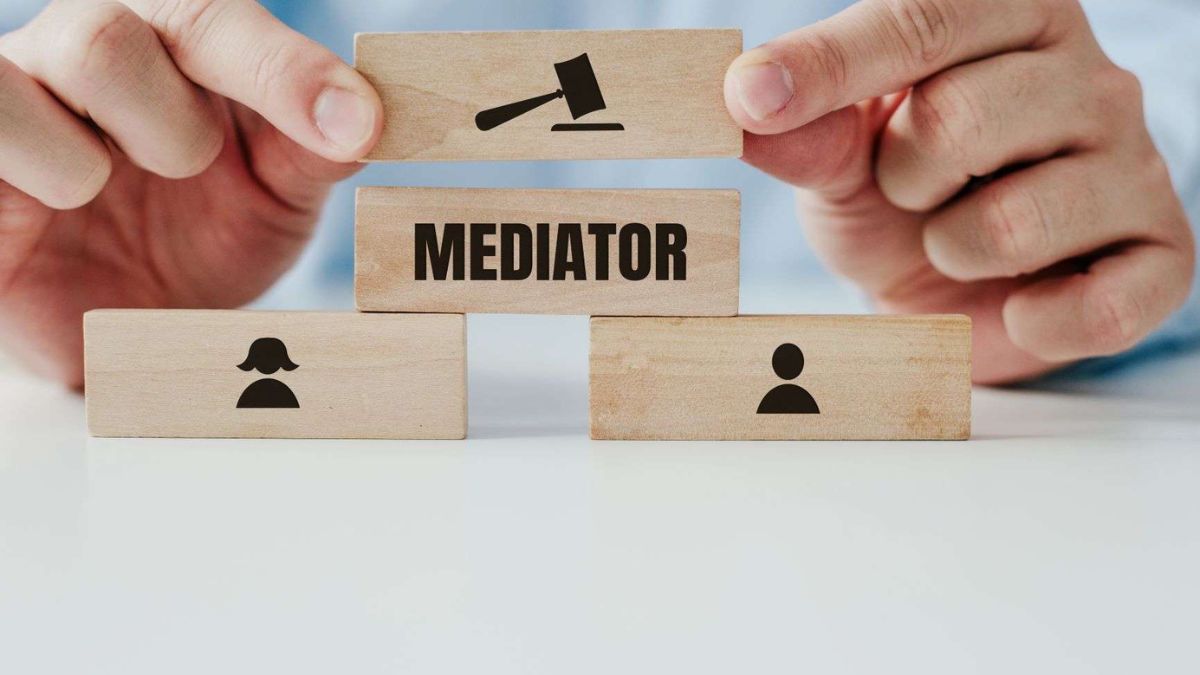HEALTH
How Stress and Anxiety Affect Erectile Dysfunction

The Connection Between Stress, Anxiety, and ED
Erectile dysfunction (ED) is a widespread issue that significantly impacts the quality of life for many men, intertwining complexly with psychological factors such as stress and anxiety. These mental health issues are not merely emotional burdens but key components that interfere with erectile function, often creating a vicious cycle that exacerbates the condition. Many men find themselves trapped by concerns of performance, which only adds layers of anxiety. In such cases, turning to a professional urologist in Sacramento for ED can provide a targeted approach that addresses both the psychological and physiological aspects of ED. Doing so makes it possible to break free from this cycle and restore a sense of normalcy and well-being.
The complex interplay between stress, anxiety, and erectile dysfunction is rooted in the body’s natural response mechanisms. When faced with stress, the body activates its fight or flight response, releasing stress hormones such as adrenaline and cortisol. These hormones prioritize survival mechanisms over functions deemed non-essential, such as sexual performance. This hormonal release can directly interfere with the body’s ability to maintain an erection by limiting blood flow and altering normal physiological processes. Addressing these psychological barriers is essential to achieving overall sexual health.
Understanding the Physiological Impact of Stress on ED
Stress affects erectile function through a cascade of physiological reactions. One important factor is the rise in stress hormones like cortisol and adrenaline, which can narrow blood vessels and create vasoconstriction, which limits the flow of blood required for an erection. Under chronic stress, the body’s ability to preserve energy for critical bodily functions changes, leading to the suppression of functions like sexual performance.
The Role of Neurotransmitters
Neurotransmitters, the brain’s chemical messengers, play a fundamental role in regulating mood and inducing physiological responses, including sexual arousal. Stress disrupts the balance of neurotransmitters like serotonin and dopamine, potentially reducing libido and making erections more challenging to achieve. Chronic stress can result in the long-term dysfunction of these neurotransmitters, contributing to ongoing issues with sexual performance.
Impact on Blood Flow
Central to the occurrence of an erection is adequate blood flow to the penile area. Stress, however, can lead to increased blood pressure and heart rate, negatively affecting overall circulation. Chronic stress can harm blood vessels over time, preventing the blood flow required to get and keep an erection. This vascular damage is a significant component in the development of ED in individuals experiencing ongoing stress.
Anxiety and Erectile Dysfunction
Anxiety further complicates erectile dysfunction by introducing an emotional barrier to sexual performance, often creating a self-fulfilling prophecy of failure and disappointment. The mental cycle of worry regarding sexual inadequacy can prevent the onset of sexual arousal, further exacerbating erectile difficulties.
Performance Anxiety
Performance anxiety stands as one of the most prevalent psychological hurdles for men dealing with ED. It creates a feedback loop where fear of inadequacy leads to inhibited sexual arousal, resulting in failed attempts to maintain an erection. When anxiety about sexual performance is present, it triggers the body’s stress responses, thereby suppressing the ability to achieve an erection. Breaking this cycle of performance anxiety requires a proactive approach towards mental and emotional health.
Self-Confidence and Self-Esteem
Erectile dysfunction can severely impact a man’s self-confidence and self-esteem, painting the portrait of decreased masculinity and worth. As self-esteem diminishes, anxiety levels can rise, leading to further impairment in sexual performance. This negative emotional burden stresses the importance of open communication with a partner, which can mitigate the blow to self-esteem and reinforce a supportive foundation, crucial for managing erectile health holistically.
Strategies for Managing Stress and Anxiety
Addressing stress and anxiety requires a well-rounded approach that includes both psychological strategies and lifestyle modifications. Integrating these strategies can provide relief from anxiety-related ED symptoms and promote overall mental well-being.
Mindfulness and Relaxation Techniques
Mindfulness and relaxation techniques, such as meditation, deep breathing exercises, and yoga, reduce stress levels and enhance focus. These practices promote a state of relaxation by soothing the nervous system, allowing better management of anxiety-related ED symptoms. Incorporating these techniques into a daily routine can provide long-term benefits for mental health and erectile function.
Physical Activity
Frequent exercise is an effective way to enhance sexual health as well as general wellness. Exercise enhances cardiovascular fitness by improving blood flow and releases endorphins—chemicals that naturally elevate mood and reduce stress. Consistent physical activity acts as a natural mechanism to alleviate anxiety and is beneficial for both mental health and erectile function.
Therapy and Counseling
Therapy or counseling, particularly cognitive-behavioral therapy (CBT), offers essential support for managing anxiety and stress. CBT specifically addresses the negative thought patterns that contribute to ED, fostering healthier mental habits and perspectives. Counseling sessions provide a judgment-free space to explore deep-seated fears and anxieties, leading to productive resolutions. Engaging with mental health professionals through therapy can provide significant relief and is a crucial aspect of comprehensive ED management.
Lifestyle Modifications for Improved Sexual Function
Lifestyle changes play a pivotal role in influencing sexual performance and alleviating ED symptoms rooted in stress and anxiety.
Healthy Diet
Promoting improved mental and physical health requires eating a balanced diet full of fruits, vegetables, healthy grains, and lean proteins. Nutrient-dense foods support cardiovascular health, which is crucial for sustaining erectile function. Diets high in antioxidants and nutrients can indirectly aid in managing anxiety, further benefiting sexual health.
Sleep and Rest
Quality sleep is indispensable for maintaining overall mental health and physical recovery. Ensuring adequate sleep—typically between 7 and 8 hours per night—helps regulate hormones and significantly reduces stress levels. A regular sleep schedule can improve cognitive function and emotional balance, positively affecting sexual health.
Avoiding Substances
Managing ED effectively can also involve minimizing or eliminating the use of substances such as alcohol, caffeine, and nicotine. These substances can interfere with sleep, elevate stress, and increase blood pressure, further exacerbating ED symptoms. By moderating or avoiding these substances, individuals may experience enhanced mental clarity and improved vascular health, essential for healthy erectile function.
The Importance of Professional Help
Professional intervention remains vital in managing ED and its psychological triggers. Engaging with psychologists and urologists provides comprehensive care that addresses both mental and physical facets of ED, constructing a tailored treatment plan that incorporates medical, behavioral, and lifestyle strategies to achieve lasting improvements in erectile health.
Recognizing the role of stress and anxiety in erectile dysfunction empowers individuals to take meaningful steps in managing their symptoms. By combining psychological strategies, healthy lifestyle modifications, and professional support, individuals can significantly reduce the adverse effects stress and anxiety have on erectile function and achieve a healthier, more satisfying sexual life.
HEALTH
Gel Ooru: A Journey into Heritage and Meaning

‘Every culture has its own set of unique words that are tied to history, land, and lifestyle. One such word that holds charm and curiosity is gel ooru. It’s a term that echoes cultural roots, connects people to their heritage, and tells a story far beyond just a literal meaning. When we explore gel ooru, we uncover not only its etymology but also the emotions and values it represents. Whether you’ve heard it in a song, a traditional saying, or from someone reminiscing about their past, gel ooru invites a deeper dive into its significance.
What Does Gel Ooru Mean?
Gel ooru can be interpreted as a term referring to one’s native place or village. In some South Asian languages, particularly in Kannada or other Dravidian roots, the phrase is often used to describe one’s hometown or ancestral land. It’s not just a place—it’s an identity. The very sound of gel ooru brings to mind images of fields, childhood memories, old temples, and simpler times. It speaks to where someone comes from, both geographically and emotionally.
The Emotional Weight Behind Gel Ooru
For many, gel ooru isn’t just about geography. It’s where their grandparents lived, where childhood summers were spent, or where family traditions were passed down. Even for those who’ve left their gel ooru for education or work in cities, there’s always a tug at the heart when they speak of it. The phrase holds a blend of nostalgia and pride. It’s common to hear someone say they are going “back to gel ooru,” especially during festivals or vacations. That phrase alone can light up conversations, bringing warmth and fond memories.
How Gel Ooru Shapes Identity
In rural or even semi-urban societies, gel ooru is tied directly to a person’s identity. People often introduce themselves not only with their name but also by mentioning their gel ooru. It gives a sense of belonging and roots. For instance, in traditional communities, knowledge of someone’s gel ooru helps understand their background, dialect, customs, and even cuisine preferences. It is part of the social fabric that binds people together with a shared understanding of their origins.
Language and the Cultural Ties to Gel Ooru
The use of the term gel ooru across generations shows how language carries culture. Whether it’s spoken during storytelling, sung in folk songs, or written in local literature, it is a reminder of the deep respect for one’s birthplace. Language preserves emotions, and gel ooru is one such emotional keyword. It doesn’t need translation because its meaning is felt more than explained. Even the way the word is pronounced often carries a lilt of affection and pride.
The Connection Between Gel Ooru and Traditions
Every gel oor’u comes with its own traditions—festivals celebrated uniquely, local deities worshipped in age-old temples, or specific foods cooked during harvest seasons. These traditions are often exclusive to that specific place and make it unique. A person might fondly recall the festival celebrations or community rituals that made their gel oor’u special. These traditions are more than routines; they’re expressions of culture, and gel oor’u becomes a vessel that carries them across time.
Why People Return to Their Gel Ooru
No matter how far someone travels, there’s often an innate desire to return to their gel oor’u. This is especially visible during festival seasons when cities empty out as people travel back to their native villages. It’s a time for reconnecting with family, tending to ancestral homes, participating in age-old rituals, and simply soaking in the slower rhythm of rural life. The peace and simplicity found in gel oor’u are hard to replicate elsewhere. It offers a break from modern hustle and serves as a reminder of one’s simpler roots.
Changing Faces of Gel Ooru in the Modern Age
With the spread of urbanization, many gel oor’us have evolved. Roads are paved, new buildings are constructed, and lifestyles are slowly shifting. However, while the outer appearance may change, the soul of the place often remains intact. Elders still recount old stories, traditional customs are preserved, and nature continues to be a vital part of daily life. Interestingly, many young professionals are now returning to their gel oor’u, driven by the need for peace, affordability, and connection with the land. This reverse migration gives a new dimension to what gel oor’u represents in today’s world.
The Role of Gel Ooru in Literature and Cinema
In many regional stories, novels, and films, gel oor’u serves as a backdrop that grounds the narrative. Characters often travel from cities to their gel oor’u and go through transformative experiences. The journey back becomes symbolic—a return to values, authenticity, and inner peace. Filmmakers and authors use gel oor’u to highlight contrasts between urban and rural life. These stories often carry deep moral and emotional lessons, where the village or native place becomes almost a character itself.
Preserving the Essence of Gel Ooru
As time goes on, there’s an increasing need to preserve the soul of gel oor’u. That doesn’t mean resisting progress but embracing it while holding on to traditions. Preserving old buildings, celebrating festivals, and teaching children about their roots are all ways to keep the gel oor’u spirit alive. Oral storytelling, family albums, traditional crafts, and even social media now play roles in keeping memories and practices from gel oor’u vibrant and relevant.
Gel Ooru and Family Legacies
Often, gel oor’u houses ancestral homes, land that has been passed down generations, or even family temples. These physical spaces serve as living reminders of lineage and legacy. They are the places where family trees are discussed over evening tea and where elders narrate their own childhood stories. These legacies give people a sense of continuity. Visiting one’s gel oor’u becomes more than just a vacation; it’s a reaffirmation of who you are and where you come from.
The Simplicity and Strength of Gel Ooru Life
Life in gel oor’u is often slower, simpler, and closer to nature. People wake up with the sun, work with the soil, and share strong community bonds. There is beauty in this simplicity—a rhythm that connects people to what really matters: food, family, and faith. This lifestyle, while often seen as “basic” by outsiders, is rich in wisdom and sustainability. It teaches resourcefulness, gratitude, and humility. Many people, after experiencing city fatigue, find solace in this way of life.
How Gel Ooru Sparks Creativity
It’s no surprise that many artists, musicians, and writers draw inspiration from their gel oor’u. Whether it’s the landscape, the people, or the life lessons learned there, gel oor’u becomes a creative wellspring. Songs about childhood, paintings of village scenes, and stories filled with earthy metaphors all celebrate the gel oo’ru experience. Creativity blooms in these settings because the connection to self is so strong, unclouded by modern distractions.
Looking to the Future: Gel Ooru and Digital Age
In the digital age, even gel oor’u is finding its place online. From YouTube channels dedicated to rural cooking to Instagram pages showcasing village life, gel oor’u is gaining a global audience. Youngsters are sharing drone shots of their ancestral homes, writing blogs about festivals, and even starting eco-tourism ventures. The digital world is helping preserve and amplify the charm of gel oor’u like never before. It’s proof that tradition and technology don’t have to be enemies.
Final Thoughts on the Enduring Power of Gel Ooru
Gel ooru is more than a location—it’s a feeling, a memory, and a guidepost. It stands for roots, authenticity, and a timeless rhythm of life. No matter how much the world changes, the idea of gel oor;u continues to offer comfort, identity, and inspiration. It reminds us of our roots and urges us to stay grounded. Whether you visit your gel oor’u once a year or just carry it in your heart, its influence never really fades.
HEALTH
Mediators in OKC Share 6 of the Best Mediation Tactics for Difficult Child Custody Mediations

Child custody battles are often an emotional and stressful legal situation for anyone. In Ok, people inform expert mediators to make fair agreements without any fight, because when emotions run high, one important thing is the right strategy. Top mediators in OKC use six of the best tactics in difficult child custody arrangements for a peaceful outcome. Moreover, process servers in Oklahoma City and private investigators near me play a vital role in such situations.
1. Start with Common Ground
One of the best things about mediation is finding something that meets the choices of both parents. If mediators start from these small things, their argument can be stronger. Like a skilled process server in OKC, a mediator must know how to deal with the tension between parents. A good mediator uses techniques that do not cause any emotional suffering.
2. Keep It Child-Focused, Not Parent-Focused
It is easy for parents to talk about their choices. But a successful mediator keeps both parties focused and makes decisions that are best for the child and both parents. Sometimes, they need to gather evidence, and private investigators near me help them in such situations.
3. Use Breakout Sessions Wisely
When emotions run high, successful mediators keep both parents in separate rooms and speak to them separately. This trick keeps things normal and allows both parents to share their ideas. It is similar to a process server in OK jobs, they often go through such situations during document delivery so that they can help mediators.
4. Bring in Helpful Facts and Evidence
In some of the high-conflict cases, mediators hire private investigators and process servers in Oklahoma to collect information and evidence to prove if one of the parents is not telling the truth about their schedules and daily life situations. Availability of these facts during mediation makes things clear and helps professionals solve the conflict.
5. Use Creative Parenting Plans
Every family is different. Mediators often suggest creative custody arrangements. Whether they ask for split holidays, midweek visits, or virtual check-ins, clever mediators like process server near me always try to avoid conflicts for parents and children.
6. Set Realistic Expectations Early
One of the biggest mistakes in child mediation is when neither of the parents agrees fr anything and both want to win. Skilled mediators help handle these situations and leave no one feeling shocked. This honesty helps both parents to compromise and achieve success.
Bonus Insight: Why Process Servers and Investigators Matter in Custody Cases
Behind the scenes of many custody battles that get solved, there are professionals like process servers in Oklahoma City and private investigators in OKC who make sure everything runs smoothly. They deliver court papers safely and gather important evidence for better solutions.
If you have ever searched for process servers and private investigator near me, it means you understand that their services are reliable and they can solve serious and sensitive matters.
Conclusion
Child custody arrangements are not easy for anyone, but if parents follow the right suggestions and strategies, they can solve the conflict. The best mediator in OKC is how to deal with emotional parents and focus on the child. With the help of experienced private investigators and process servers ,the process can be smoother and reliable.
HEALTH
Why Martial Arts Sydney Is More Than Just Self-Defence

Do you want to know what makes martial arts different from other physical activities? When you train in martial arts Sydney, you learn skills that help you defend yourself while building mental strength development in practical ways that improve your daily life.
What Martial Arts Classes Really Teach You
Many people join martial arts, thinking they’ll only learn how to fight. The reality? Martial Arts training reshapes your body and mind in ways regular gym workouts don’t.
How You Build Toughness Through Training
Martial arts classes put you in challenging situations on purpose. You learn to handle pressure, solve problems, and develop grit that serves you everywhere.
Regularly facing difficulties with supportive classmates makes you calmer during stressful moments. This calm helps with work deadlines, traffic jams, and family emergencies alike.
Can Martial Arts Actually Improve Your Concentration?
Our attention gets pulled in countless directions every day. Martial arts Sydney training counteracts this by requiring total focus during practice. You don’t just pay attention briefly – you train your mind to lock in completely.
Many parents are told by teachers since their child started classes, they sit still and listen better in class. The clear instructions and immediate feedback in martial arts make focus a trainable skill, not just something you either have or don’t.
Why You’ll Make Real Friends
Academies that teach martial arts Sydney create communities, unlike typical gyms. People who sweat, struggle, and succeed together form genuine bonds.
Your training partners quickly become people who understand your challenges both in and out of class. Many students initially join for fitness but stay for years because of these connections – something particularly valuable in a busy city where meaningful interaction often feels rare.
Physical Changes You Might Not Expect
Regular exercise makes anyone fitter, but training in martial arts Sydney develops specific physical abilities most workout routines miss entirely.
How Your Strength Changes
Unlike machines that isolate muscles, martial arts movements engage your entire body. You develop practical strength that helps with everything from carrying groceries to playing with kids.
Furthermore, martial arts classes teach you to use tension only when needed while relaxing elsewhere. This efficiency helps office workers with chronic tension and weekend athletes alike.
Why Your Coordination Improves
Through repeated practice of precise movements, you rewire your brain’s movement patterns. This improved body awareness leads to better balance, posture, and overall movement quality.
Adults who always considered themselves “uncoordinated” often discover this quality isn’t fixed – it can be developed. The changes happen gradually but add up to noticeable improvements in how comfortably you move through daily life.
How To Choose A Good Martial Arts Sydney Academy
With dozens of options across Sydney, how do you find a school that teaches these deeper skills rather than just physical techniques?
Look at how instructors interact with students. Do they explain the “why” behind movements? Do they address the mental aspects of training? Good schools emphasize character alongside technique.
Check if classes include students of different abilities training together respectfully. The best academies for martial arts Sydney maintain high standards while adjusting teaching methods for individual needs.
Why Start Martial Arts Now
Martial arts training gives you practical self-defence skills while developing mental toughness, focus, and community connections. These benefits help in every area of your life.
Are you ready to see these changes yourself? Visit a local martial arts Sydney academy this week. Watch a class. Talk to students. Find training that fits your goals and schedule – your future self will thank you for taking this important first step.
-

 TOPIC1 year ago
TOPIC1 year agoInvitation Printing: How to Create Perfect Invitations for Any Occasion
-

 TECHNOLOGY1 year ago
TECHNOLOGY1 year agoAbout Technology From Axiumtechnet: Exploring the Beautiful Future
-

 BUSINESS1 year ago
BUSINESS1 year agoGoogle Business Profile Kgmid Extractor: A Deep Dive
-

 TECHNOLOGY1 year ago
TECHNOLOGY1 year agoThe Rise of Hqpotner: Exploring Its Impact on the Blogging Community
-

 TECHNOLOGY1 year ago
TECHNOLOGY1 year agoAlpha Technologies Fxm350 Snmp Oid: Comprehensive Overview
-

 FASHION1 year ago
FASHION1 year agoUnderstanding Influencersginewuld: The New Wave of Digital Marketing
-

 BUSINESS1 year ago
BUSINESS1 year agoDining Delights: 200 E Business Hwy 23 Walsco Tx
-

 FASHION1 year ago
FASHION1 year agoHow to Style Corset Prom Dresses with Accessories from Your Favorite Millinery Shop
